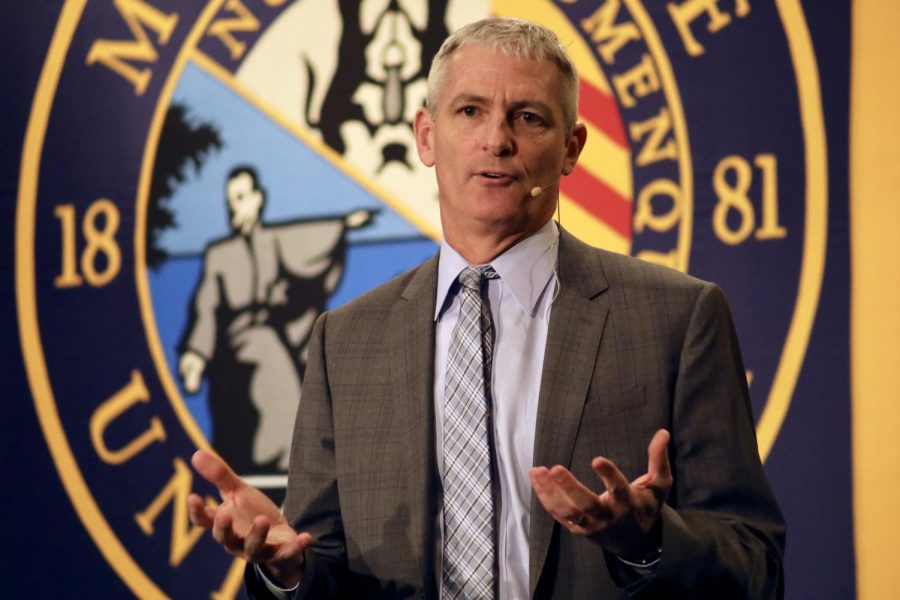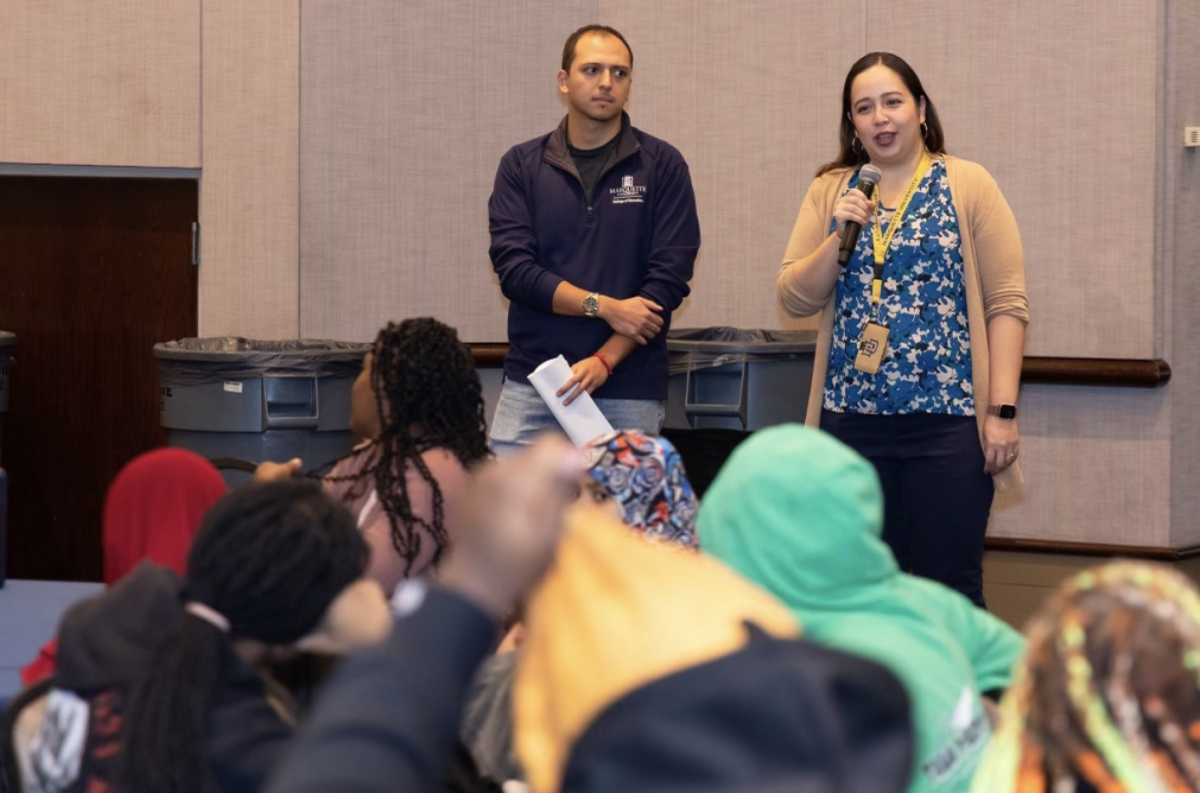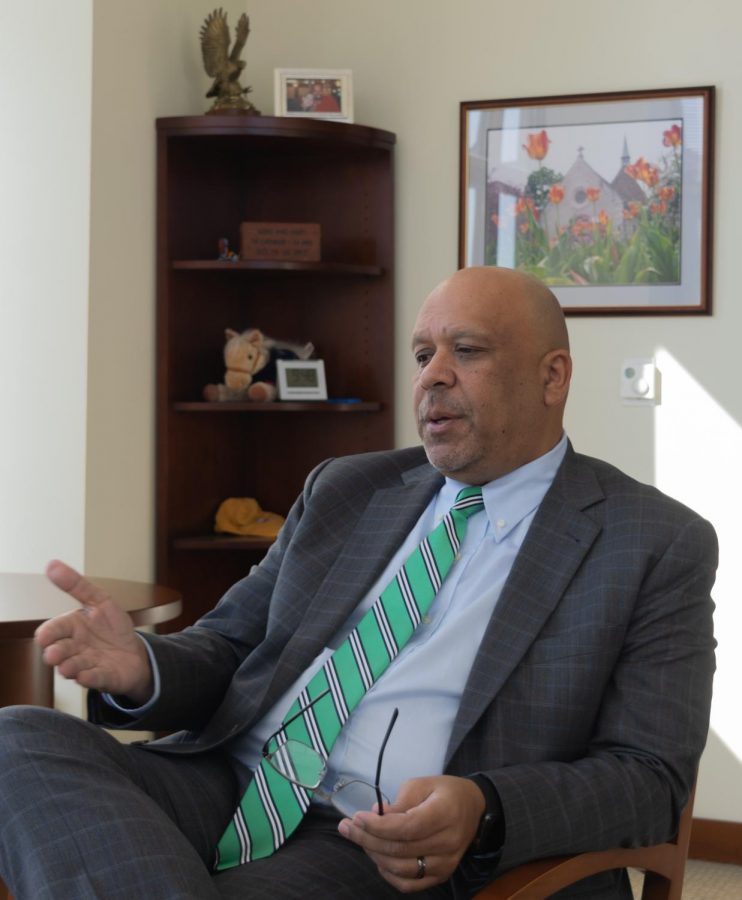The university cut 2.5% of its employees last week, which included laying off 24 staff members and not filling 49 current and future vacancies.
An email to faculty and staff last Thursday detailed the cuts as part of the university’s “cost management review process.” Out of 2,926 employees, a total of 73 positions in academics, athletics and administrative departments were removed. All new positions will undergo a cross-disciplinary review process, though University President Michael Lovell did not explain of what this will consist of in last Thursday’s email.
The university asked deans, vice presidents and vice provosts to give cost management recommendations over the summer. During the past month, the university reviewed the proposals.
Lovell said in the email that the “decisions were made with great care and discernment.”
“Change is always hard, and it is especially hard when it impacts people we care about,” Lovell wrote. “We are grateful for their service to Marquette.”
The cost management review process is part of the university’s attempt to address financial and demographic challenges affecting the higher education industry, as Lovell expressed in an August letter to faculty and staff.
The amount of college-age students is expected to decline by 15% to 25% beginning in 2026, which Lovell said is noted in the book “Demographics and the Demand for Higher Education” by Nathan Grawe. The decline is attributed to less births after the 2008 economic recession.
The university will provide laid-off staff with a severance package that includes extended pay and benefits, employee assistance services and career transition and outplacement services. The Office of Mission and Ministry is offering spiritual support to employees affected by the layoffs.
Any child of a Marquette employee receiving tuition assistance through the FACHEX tuition exchange program will continue to receive those benefits until completing their ongoing academic programs.
“I know today’s events will raise questions and uncertainties about the future,” Lovell said in the email. “No matter what happens within our industry within the months and years ahead, the leadership team across campus will always be committed to our Catholic, Jesuit mission.”
Lovell said the university does not expect further personnel reductions in the near future, but he said “we must remain vigilant about responding to market conditions in our industry.”
Organizational changes were also made as part of the cost management review process.
The Center for Engagement and Inclusion, the LGBTQ+ Resource Center, Student Involvement Activities, and Greek Life is now combined into one office, called the Office of Engagement and Inclusion. The Division of Student Affairs will oversee it.
The university is also evaluating the College of Education’s structure, “to achieve new efficiencies.” It will be looking into graduate degree programs in high-demand areas as well.
Marquette University Police Department is reorganized into two functional areas “to remove role ambiguity and better serve the campus community,” also as part of the review process.
Enrollment management functions in the Graduate School and Graduate School of Management will be centralized to “more efficiently deliver services for graduate students.”
Lovell did not provide specific details about the organizational changes in the email.
Acting provost Kimo Ah Yun and senior vice president and chief operating officer Joel Pogodzinski sent a question-and-answer document to faculty and staff reiterating some of the same points in Lovell’s email. The administrators said the document is to “help guide conversations and provide context around President Lovell’s letter.”
“In the interest of constructive and healthy dialogue, we strongly recommend meeting with your direct reports and others in person,” the email said. “Face-to-face conversations will foster greater understanding, particularly amid what is challenging news to hear.”
Marquette University Student Government released a letter Thursday evening supporting the university’s “tough decisions.”
“Although job loss is never something that our community desires, it is critical to understand the context behind such decisions,” MUSG leaders wrote in the statement.
The MUSG leaders said they believe the university is being transparent about the recent changes, and it urged administrators to continue communicating with students, staff and faculty about budgeting and tuition decisions, among other critical issues.
This story is developing.






